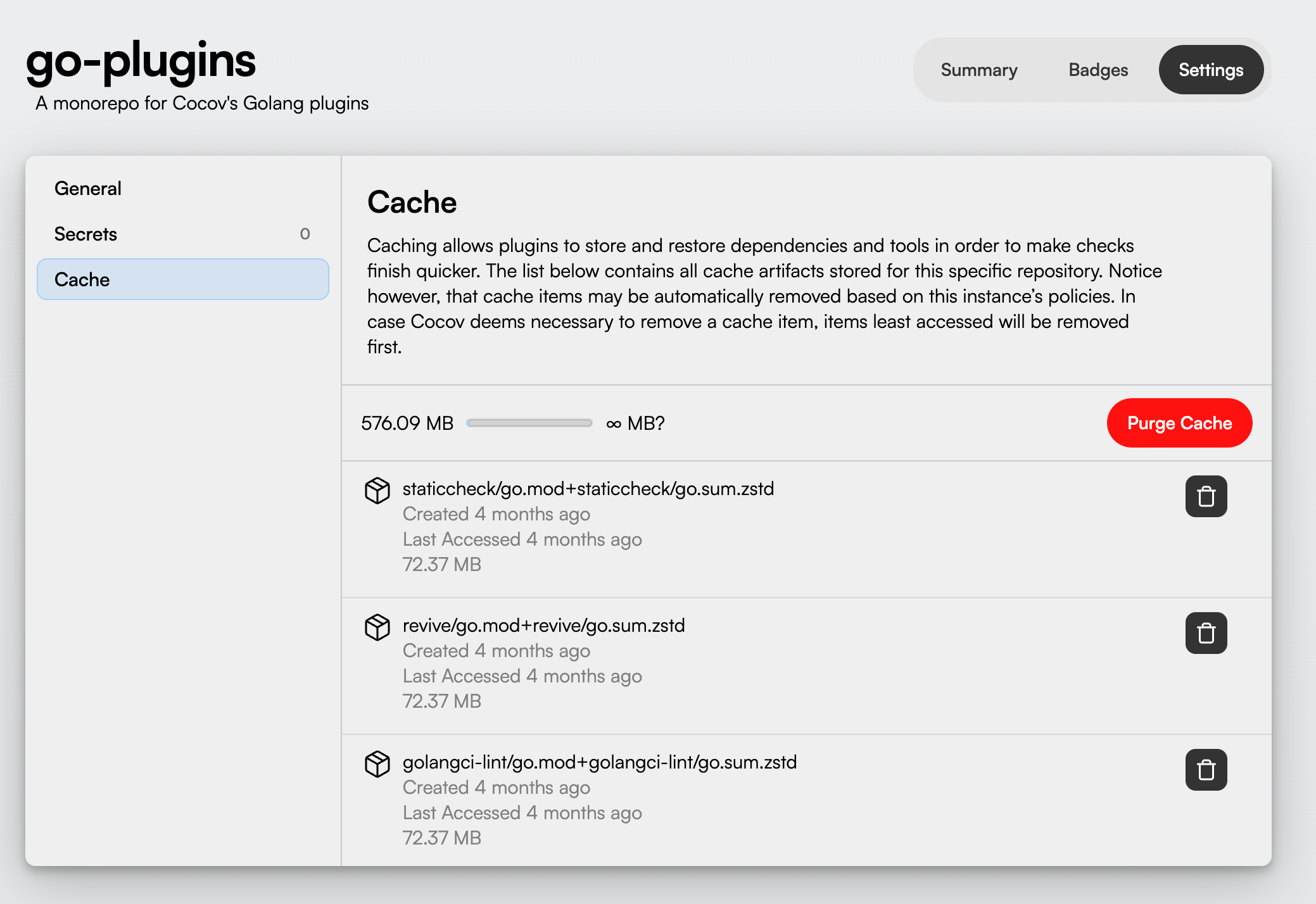Caches
Cocov instances have the option to enable an internal cache server to store artifacts responsible for speeding up checks. Those artifacts can be stored in a local disk, or remotely, on an S3-compatible service. For information on configuring this feature, see Platform Components/Cache.
How Cache is Used #
Cocov plugins can optionally request artifacts to be stored and retrieved from the instance’s cache. Those artifacts are stored in a per-plugin, per-repository basis, maintaining isolation between each of those components.
Data stored by plugins is arbitrary, but we recommend plugins to store only relevant data. For instance, a Go plugin may cache project dependencies in case a full working tree is required for a plugin execute correctly.
Enabling the cache server is optional, and instances not offering said internal services poses no difference to plugins; the only downside is potentially slower checks. Administrators can define a storage quota applied to all repositories; enabling this allows older cache artifacts to be evicted when the quota is exhausted, effectively removing older or least-accessed artifacts in order to give space to new artifacts.
Managing Cache Usage #
Maintainers and Administrators can observe cache usage through the repository settings section. In this section, a couple of actions can be performed:

The Cache List section allows users to observe how much of their quota was consumed, and also allow to the entire cache pertaining to that specific repository to be purged at once. Additionaly, cache artifacts may be removed manually.